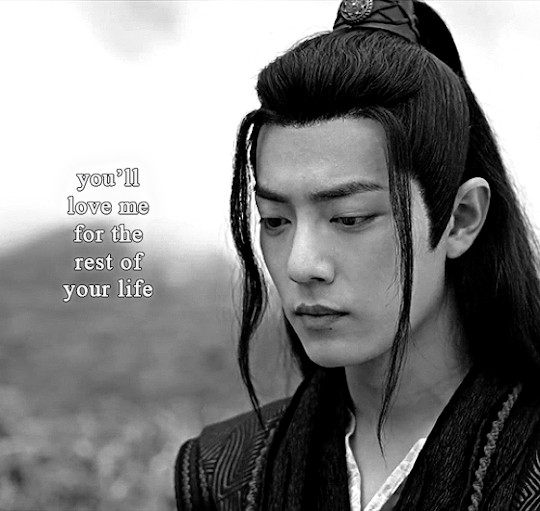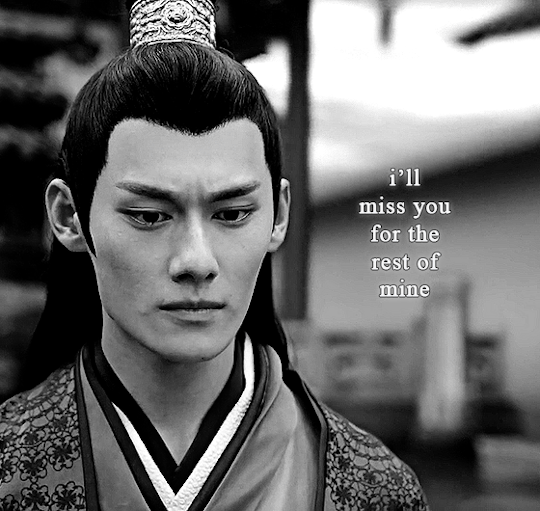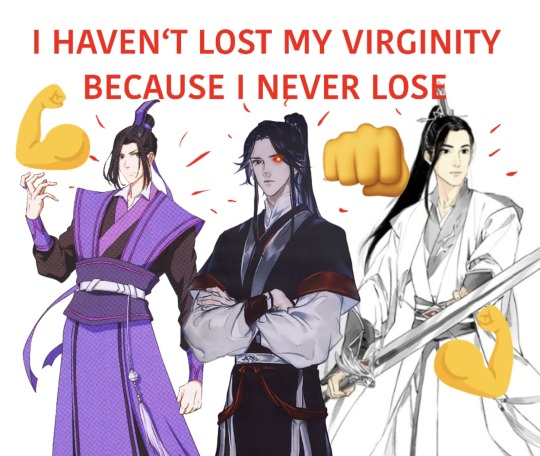Text
When people get a little too gung-ho about-
wait. cancel post. gung-ho cannot be English. where did that phrase come from? China?
ok, yes. gōnghé, which is…an abbreviation for “industrial cooperative”? Like it was just a term for a worker-run organization? A specific U.S. marine stationed in China interpreted it as a motivational slogan about teamwork, and as a commander he got his whole battalion using it, and other U.S. marines found those guys so exhausting that it migrated into English slang with the meaning “overly enthusiastic”.
That’s…wild. What was I talking about?
38K notes
·
View notes
Text
😭
Magnificent!

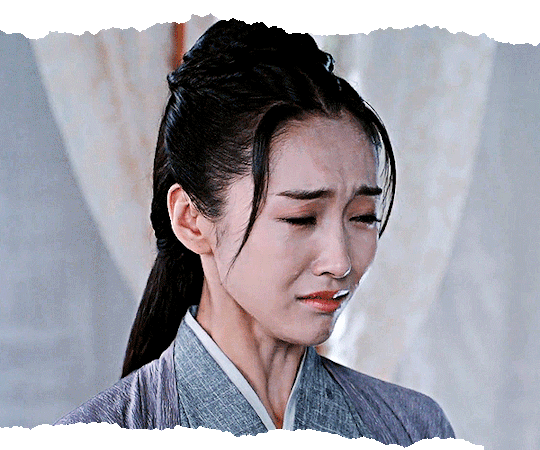

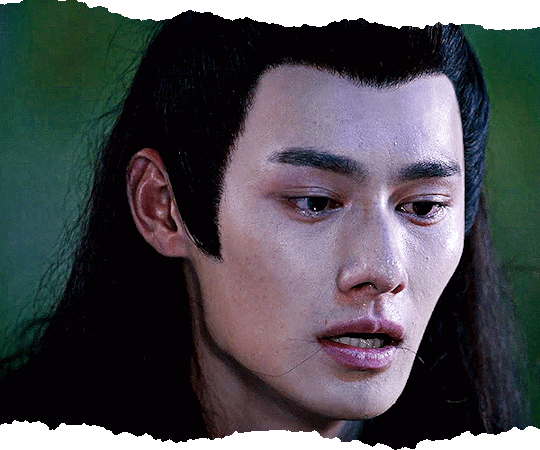

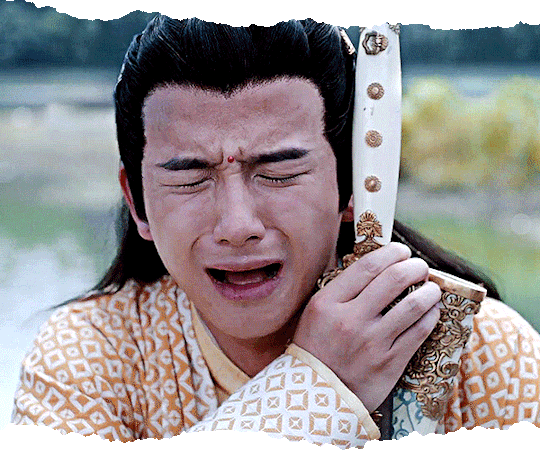


273 notes
·
View notes
Text
Something I think ppl who aren't used to it struggle with when it comes to ancient history is that frequently 'we do not and cannot know this' is the only truthful response a historian can give. People severely overestimate how much we actually know about Ancient Rome.
I remember talking to someone at a party once about the debate over Septimius Severus's ethnicity (whole other can of worms) and they asked if genetic testing of his remains was not a way to settle it and I was like oh. Oh okay you are under the impression we have the physical remains of Roman emperors from the second century AD alright then. (We. Do not.)
29K notes
·
View notes
Text
You Can Now Subscribe to OTW News by Email

Would you like to receive OTW News updates by email? You can now subscribe to our news in multiple languages, and either receive each post as it's released or a monthly digest of all the news. Find out more at https://otw-news.org/bdh6rmkc or at the other language links below.
বাংলা • Deutsch • English • español • français • italiano • मराठी • Nederlands • português brasileiro • português europeu • Română • Русский • svenska • Tiếng Việt • Українська • 中文
233 notes
·
View notes
Text
These are unironically hilarious

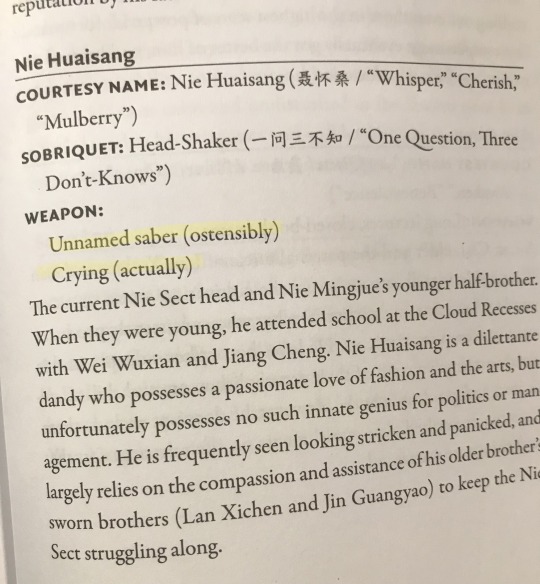

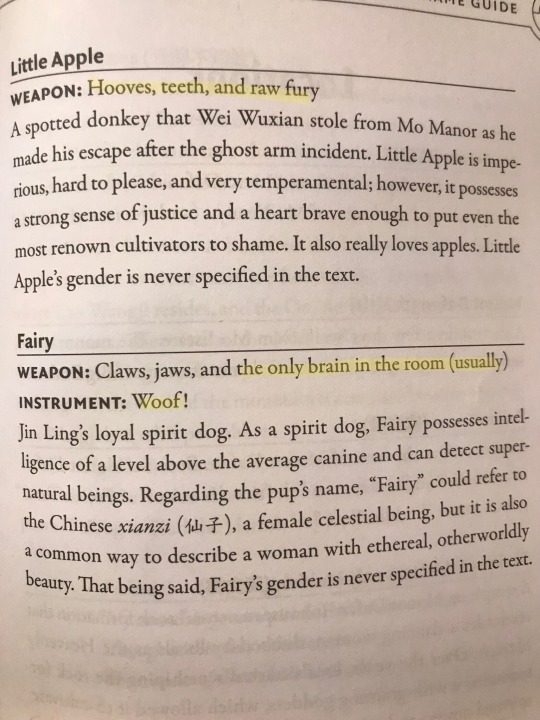
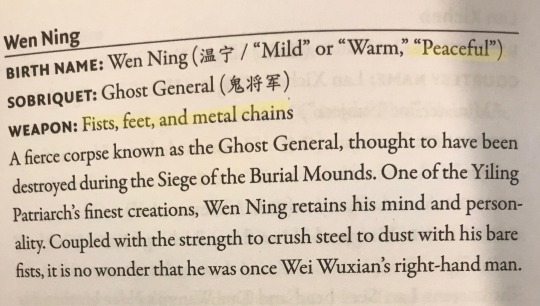
104 notes
·
View notes
Text


I have a hard time deciding which one I like better.. so I made art prints of both ehhe (there's an ongoing giveaway on my twitter bwt! @\dreielire )
241 notes
·
View notes
Text
Reblog for larger sample size. Feel free to indicate in the comments your generation, approximate region of residence, your length of experience with fan fiction, or when/where you first encountered these terms.
4K notes
·
View notes
Text
beautiful.
oomph

I’m sorry I died
2K notes
·
View notes
Note
hello! do you know of a handy chart or reference for keeping track of which word for uncle/aunt a person would be depending on side of family they're from and relation to you?
Master Chart for Familial Relationships
I HAVE OPTED TO DO THIS INSTEAD OF SLEEP.
I’m too tired to proofread so if you see a mistake please point them out. Click on them to see the clear pics.
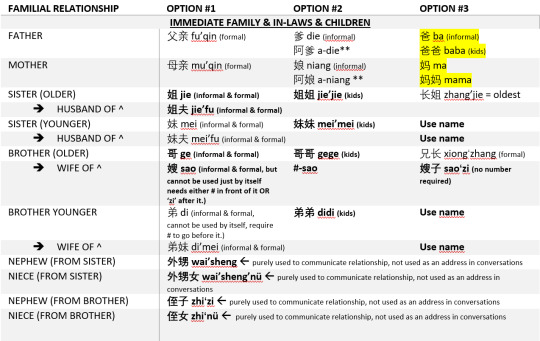
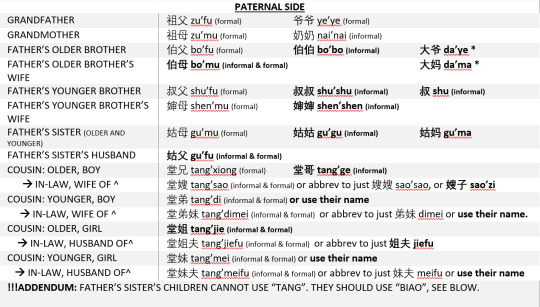

[Notes:]
* these are typically northern Chinese terminologies.
** They use of “a-” in front of something like “a-die” like “A-Cheng” is regional. From what I understand this is typically a southern Chinese practice.
Bolded = modern & historical times
Highlighted = ONLY used in modern times aka 20th century and afterwards.
Use name = in conversation with someone one younger than you, don’t typically use the relationship term, just call them by their name. The addresses are really used for those older than you as a sign of respect. This is particularly true for modern times.
All uncles and aunts and cousins and brothers and sisters are typically paired with the # they are in the fam [da, er, san, si, wu] (1-5).
Edit: y’all when i say “paternal” cousins I mean cousins that share your last name, if your cousin doesn’t share your last name, that’s a maternal cousin.
ADDENDUM:
OKAY FOR THE COUSINS
The chart was going to get too long, so I tried to short cut and ended up making it more confusing for people.
When I say “paternal” cousins, yes this means cousins on your dad side of the family. But your father’s sisters’ kids, who are technically your paternal cousins, do not share your last name, so don’t use “tang”, use “biao”.
2K notes
·
View notes
Text
Orcs ?

Where we going?
Oscar Vault has scripted us for China ...

So where to?
Gusu.
Tranlations.
This is real.
😱
Mondadori Oscar Vault.
😭
0 notes
Text
It gets worse. 😡
How can that be? 🙄
Apparently ... the new (Oscar Mondadori Vault) team translated ... Without having read the whole work ... 🤬
What? 🥺
They haven't read the novel ...
Not even in English ...
They just looked at the Chinese ... and translated ... directly ... 🥵
😱
😱
Gran Maestro.

The great Italian Fuck Up.
The translation is terrible.
The outrage is rampant.
A good summary of the problems in Italian.
Part of them are true for the English as well.
😭
#mdzs#gran maestro della scuola demoniaca#mondadori vault#il gran casino#traaduzioni#translations#the great italian fuck-up#they haven't read the novel#I want to repeat: they haven't. read. the novel.
3 notes
·
View notes
Text
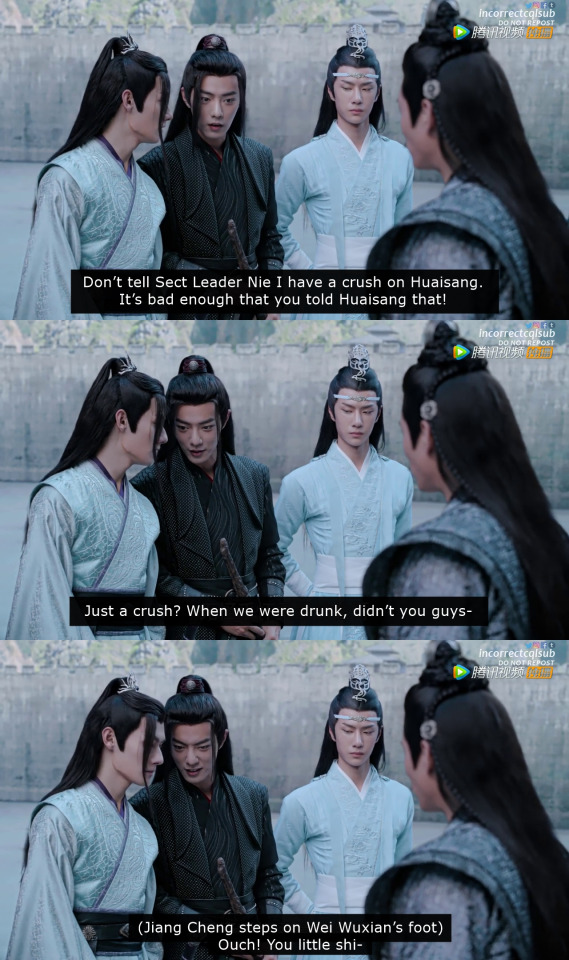
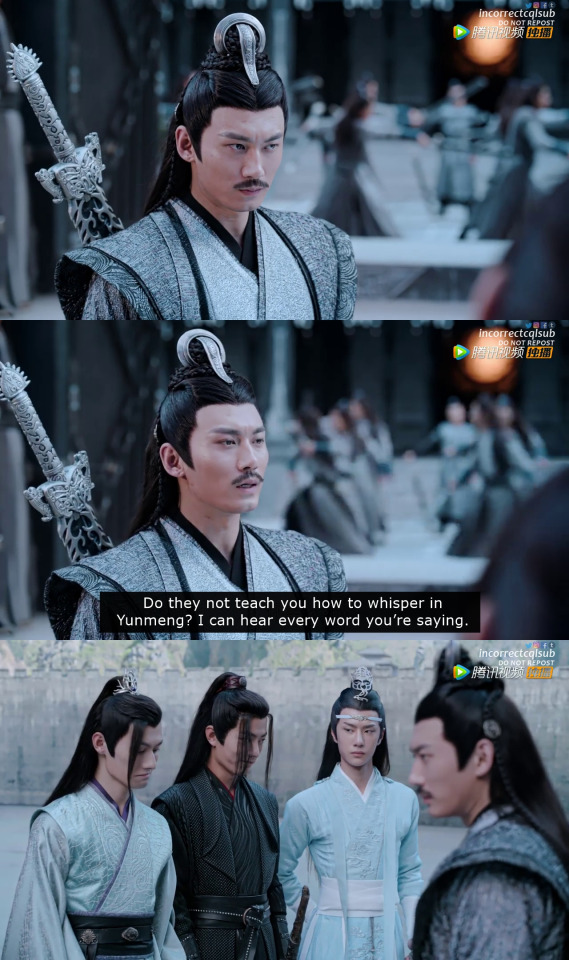
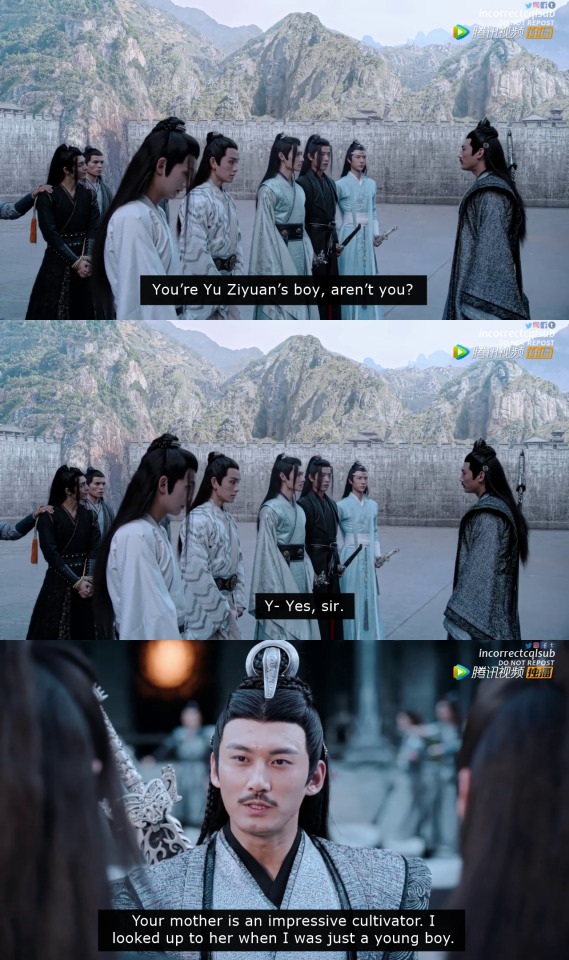
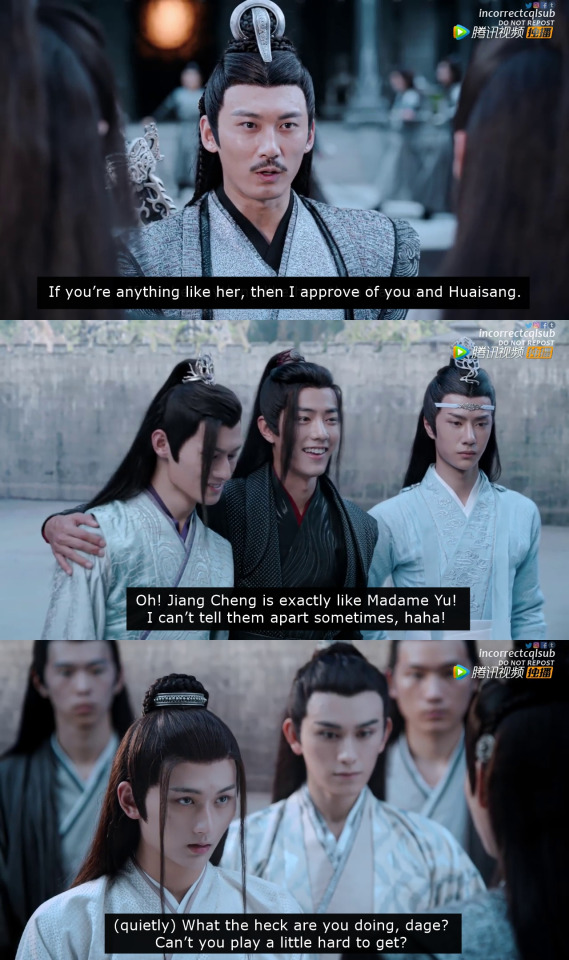
Kofi extra for Priyanka ^^ (part 1, part 2 is #231) Thank you for the and for being proud of our work
2K notes
·
View notes
Photo
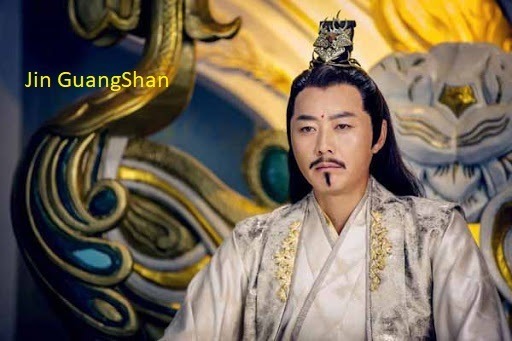
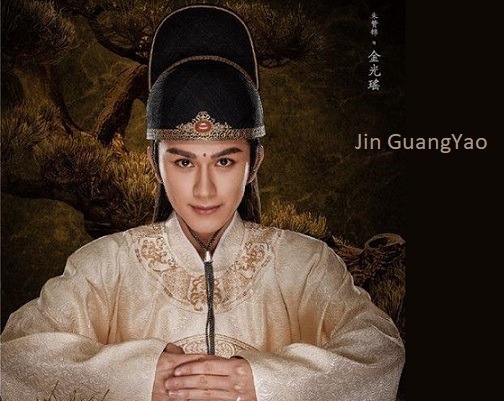
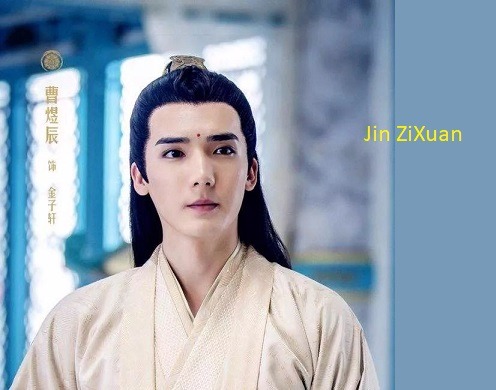

This is yet another piece of obscure trivia about Chinese names; I dithered over writing this out because it merely serves as further evidence that Jin GuangShan is a horrible dad to Meng Yao. While it’s not exactly a pleasant read, I think some of y'all might be interested in/curious about naming conventions and stuff, so caveat lector.
I’d wondered about this when I first read the novel a few years ago, but only came across 3 discussion threads on the topic. Although readers have somewhat reached a consensus, I don’t think the author had ever publicly confirmed or indicated otherwise; still, the conclusion seems pretty legit to me.
Jin ZiXuan’s cousin Jin ZiXun, and presumably every one of his cousins of that generation/cohort with a Jin surname, would bear a name that fits this pattern: Jin Zi [insert 3rd character here].
Jin ZiXuan’s dad Jin GuangShan, and all his brothers and first cousins of that generation/cohort, would bear a name that fits this pattern: Jin Guang [insert 3rd character here].
So why did Meng Yao / Jin GuangYao buck the trend?
The tradition of giving a child a two-character name, of which the first character is shared among cohorts of the same generation, is dictated by a family’s genealogy register. Well-established families who trace back their lineage for hundreds of years have genealogy registers passed down through the generations, but these are uncommon in modern day China because most were destroyed during the Cultural Revolution in the 60s/70s.
Some surmised that this led to the proliferation of single-character given names in present-day China. On top of that, the one-child policy mandated in 1980 probably also rendered the notion of genealogical cohorts pointless after a couple generations. However, this tradition is still prominent in pockets of the Sinosphere untouched by the Cultural Revolution, such as Hong Kong, parts of Malaysia, Taiwan, and Singapore, among others.
For someone who comes from a big family with history, the first character in their given name is preordained by their family’s genealogy register. Typically, an esteemed ancestor back in the day would compose a panegyric for the genealogy register, and every generation of descendants thereafter would take the next character from that poem as their “middle” name.
It makes you wonder why Jin GuangShan gave Jin GuangYao the middle name that “identifies” him as a brother/first cousin, and not son.
Remember Jin GuangShan’s refusal to acknowledge he begot an illegitimate son by a courtesan, even though Jin ZiXuan and Jin GuangYao were born on the same day? Meng Yao would never have been allowed to take on the Jin surname if not for his meritorious service in the Sunshot Campaign.
Letting Meng Yao become “Jin ZiYao” would place him in the line of succession and in direct competition with Jin ZiXuan. On the other hand, relegating him to a generation above removes him further from the potential pool of contestants – to become the next Jin clan leader, he not only has to get past Jin ZiXuan, but Jin ZiXun as well. It also effectively excluded him from the path of inheritance.
So, by giving Jin GuangYao the middle name Guang, which on the surface upgraded him to a generation above his cohort, but in effect demoted him to the role of retainer, Jin GuangShan unknowingly signed the death warrants for himself, his son, and his nephew.
Related meta posts
Courtesy names | Courtesy names 2 | Honorific titles |
Name meanings | Genealogy register | Sanren
2K notes
·
View notes

